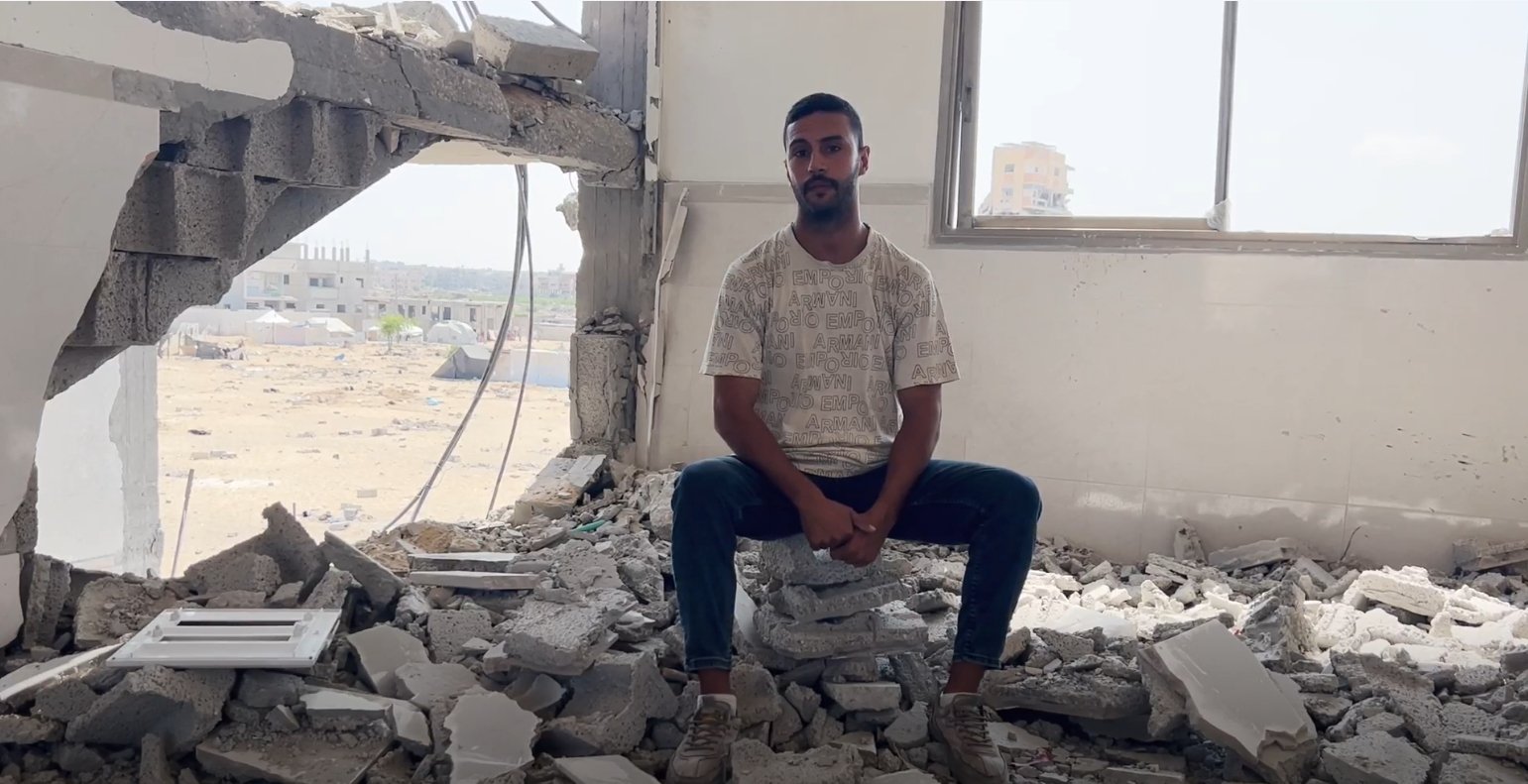Stories from Gaza: Nowhere safe to shelter
In the early days of the war, Ahmad was helping others. He supported the emergency response for Caritas in Gaza. He helped deliver aid, from food parcels to essential medicines, and found emergency shelter for those in need.
He saw the suffering caused by the war up close: Overcrowded shelters bursting with families, children too afraid to sleep, water tanks running dry.
But at night, he still had a place to go. His family was safe. He was a witness to the pain, but not yet part of it.
Then as the war escalated Ahmad and his family were forced to leave their home in the north.
"We did not want to leave, but the bombing was so cruel that we had to abandon our house in Gaza City and head south," he explains.
They moved south to Khan Younis and joined dozens of others crowded into a small house meant for one family. People shared what they had. They cooked together. They waited for news. Amidst the chaos, they found something that felt like stability, at least for a time.
For two and a half months, they survived like this. Sleeping on floors, enduring constant shelling and scraping by with the bare minimum of food and water. Yet every day was filled with an underlying dread. The war was not over. But just as they began to find some semblance of normalcy, tragedy struck.
Waking Into Darkness
In the early hours of the morning, a bomb hit the building where Ahmad and his family were sleeping. The blast tore through their temporary home, trapping them beneath the rubble.
“Suddenly I didn’t hear, see or feel anything. I was lying on the floor, covered in rocks and rubble. I could only move my head and look around. It was very dark,” Ahmad recalls.
His father and two brothers were injured by shrapnel and falling debris. His older brother’s leg was shattered beyond repair.
“The most painful moment came when he discovered his brother in the ambulance. “I got into the ambulance and found my brother lying there with an amputated leg," he says, his voice breaking with the memory of the tragic night.
Ahmad was discharged from the hospital, but his brother remained, awaiting critical treatment—treatment that may never come unless they are allowed to leave Gaza.
But the suffering didn’t stop there. The family’s shelter in Khan Younis was destroyed. They were displaced yet again, this time to a tiny one-room house in Rafah. Soon after, attacks targeted that home as well, injuring more relatives.
Watching over you
Ahmad stayed at the European Hospital with his brother, watching over him as his brother’s life hung in the balance. As days turned to weeks, the hospital became a sanctuary, yet it too was not immune to the violence. Soon, even that hospital compound became unsafe. The family was displaced again, moving to a refugee camp, where conditions were even worse, no water, no shelter, no safety. They kept moving, from one makeshift home to the next, with each step bringing them closer to the brink of despair.
And still Ahmad refuses to give up.
“Thank God we work at Caritas, allowing us to serve people in the most challenging conditions,” Ahmad said.
Even while caring for his wounded brother, even while displaced again and again, his commitment to helping others remains unshaken. His unwavering dedication to others amidst his own pain is a reminder that even in the direst situations, hope and humanity endure.
But Ahmad can’t do it alone.
You Can Help Families Like Ahmad’s
The suffering in Gaza continues to grow, with every passing day bringing more destruction, more death, and more families in need. You can help provide critical relief—food, shelter, medical care, and a chance for survival—for people like Ahmad who are still fighting to hold on.
“We hope for an end to war and suffering, and displacement so that we can return to our homes,” Ahmad says. “I wish we could return to normal life.”
In a time of overwhelming crisis, you can make a difference. With your support, Ahmad can continue helping those who need it most. Together, we can help families take a step closer to normal life once more.
When disaster strikes every second counts.
They’ve lost homes, loved ones, and livelihoods. But with your help, they won’t lose hope. Your support today is the reason they’ll survive tomorrow. Together, we can act with love and restore dignity in the darkest of times.


